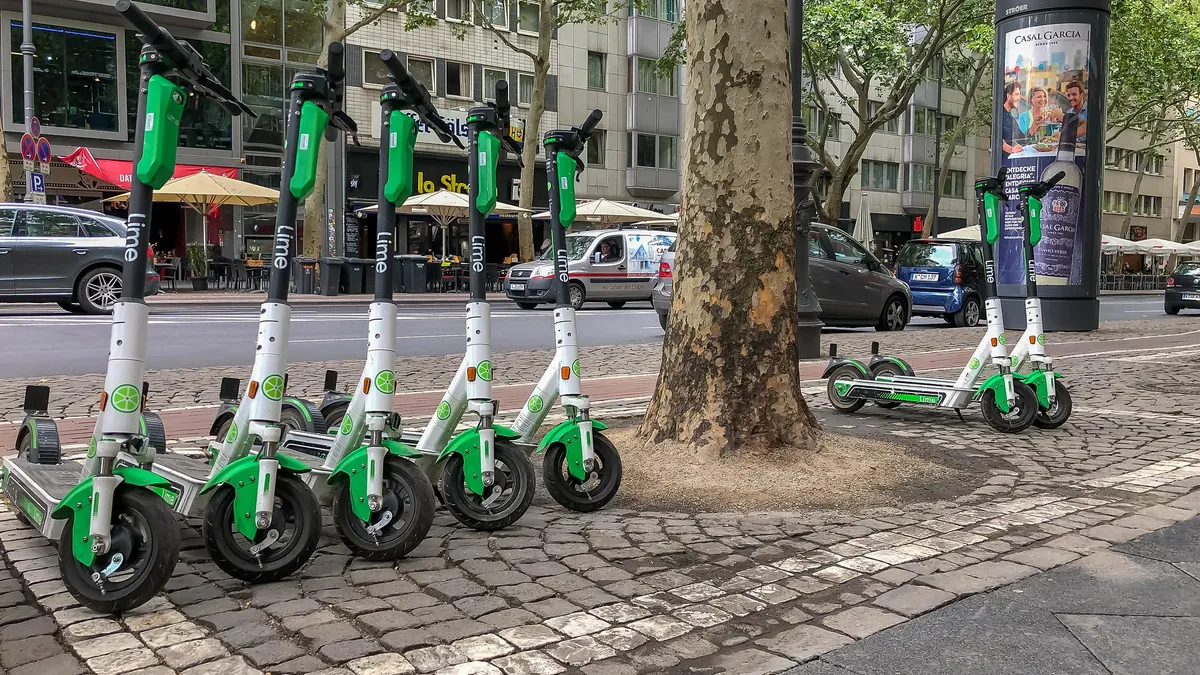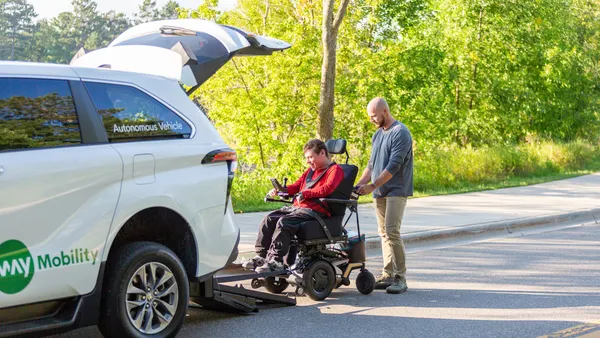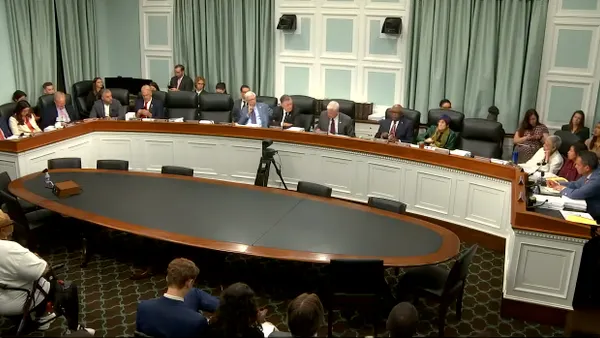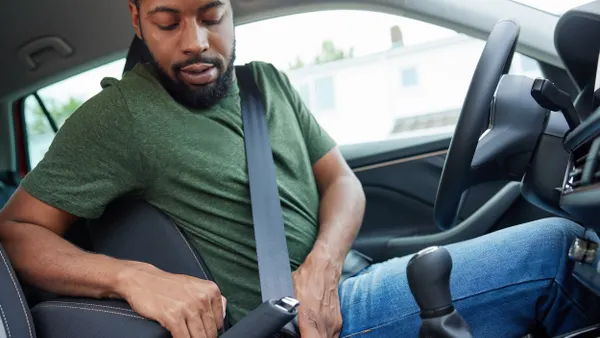Dive Brief:
- Lime announced on Thursday that it will launch a Mobility-as-a-Service (MaaS) platform this winter in an effort to become a "one-stop shop" for consumers seeking a shared electric vehicle. Micromobility operator Wheels will be Lime's first partner on the platform.
- The MaaS platform will kick off in Miami, Seattle and Austin, TX, as well as Berlin, with additional markets and partners to follow. The platform will be a permanent, integrated feature of Lime's existing app.
- The company's long-term aspiration is to build the go-to platform for light electric vehicle rides under five miles, Lime CEO Wayne Ting said in an interview. To achieve this, he said, Lime must leverage partners to fill out the platform's offerings. "Our whole goal is that ... you can find the mode that's right for you, that is the right price, and you'll be sure that every mode on the Lime platform is sustainable, is green and is affordable," Ting said.
Dive Insight:
Lime has marketed this platform as a "first-of-its-kind" offering for light electric vehicles. And while Lime is the first dedicated e-scooter operator to host its own MaaS platform, other industry players have been exploring the space for years to innovate the otherwise traditional role of transportation.
"Transportation is really flattening out to shorter trips throughout the day. It's upending transportation planning and how people are getting around. I think if we see this trend continue, we're going to see more of an outcry for MaaS," Sarah Kaufman, associate director of the New York University Rudin Center for Transportation, told Smart Cities Dive in an interview last year.
Uber and Lyft are two leaders that have explored MaaS capabilities in their platforms, with Uber actually moving to host Lime scooters in its app. When asked how Lime's aspirations around its MaaS platform compete with the offerings of Uber, Ting said the featured products are the main differentiator.
"Lime is all electric ... and all the products online are hardware focused," he said. "These are very different types of products than we traditionally see on a ride-share platform."
There's value in offering customers a variety of products through one app, Ting said, noting it "ultimately helps us achieve that goal, which is giving our riders more choice and ensuring that the Lime platform is more reliable." He went on to explain that securing these partnerships is a more favorable option for Lime than simply acquiring companies and their products.
It's also a favorable option for the partners, who can now tap into Lime's loyal following of app users. Wheels' vehicle, The Atlas, is a no-pedal electric bike with 14-inch wheels and an integrated helmet system — an offering that's entirely unique to the current vehicles on Lime's platform.
"For the micromobility industry to really serve its purpose, it needs to be easy for people to use. So I think having integrations that make sense, that are all about ease-of-use for the rider, and that can get more of these sustainable devices out to people who can benefit from them, is definitely a good thing and I wouldn't be surprised if it happens more across the industry," said Todd Maron, communications lead for Wheels.
Last month's launch of RidePanda, a first-of-its-kind marketplace for e-bikes, scooters and mopeds, also highlighted the value of a one-stop shop for micromobility consumers. The founders of RidePanda — one of which is a former Lime employee — share the mission to support industrywide efforts around reducing personal car ownership and carbon emissions, though RidePanda's intention is to boost ownership of the vehicles that can help reach those goals.











